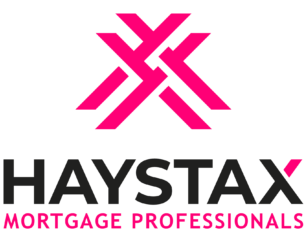Mortgage Definitions
What is a High Ratio Mortgage?
A high ratio mortgage is a mortgage for the purchase of a home that exceeds 80% of the purchase price or appraised value of the property. This type of mortgage must be insured as mandated by the government of Canada.
What is a Conventional Mortgage?
What is a Fixed Rate?
A fixed rate mortgage provides the borrower with a guaranteed interest rate for a specified period of time. In Canada, fixed term mortgages typically range from 6-month terms to as long as 10-year terms, depending on the lender and the products they offer.
What is the Difference Between an Adjustable Rate and a Variable Rate?
The adjustable rate or variable rate mortgage provides a lot of flexibility, especially when interest rates are on their way down. The rate is based on prime sometimes with a discount. With an adjustable rate mortgage, the mortgage payments change with the interest rate. When interest rates are falling, your payment lowers accordingly. When rates increase, so does your payment. With a variable rate mortgage, your payments are fixed and stay constant. When rates are declining, more of your payment goes to principal. But in a climate of rate increases, the original payment may not cover both the interest and principal. Any portion not paid is still owed and you may be asked to increase your monthly payment. The interest rate at the time this happens is referred to as your "Trigger" rate.
Is an Interest Only Mortgage Right for You?
Make a principal payment or pay only the interest on your mortgage. It’s up to you for the length of the interest-only term. Now that’s flexibility.
A HELOC is a mortgage that allows you to borrow large sums of money by using your house as a line of credit. You can only borrow up to 65% of the value of your home for a HELOC. Be sure to give us a call to ensure the use of the loan will offset these repayments and make for the best financial decision for your financial future.
A HELOC has:
- The ability to borrow large sums of money
- No specification on what that money is used for
- Benefits when trying to consolidate debt at low interest rates
- Interest only payments
Here is a summary outline of the key qualification criteria for Alternative Lending mortgages in Canada (formerly known as subprime mortgages):
- Minimum down payment of 20% is required
- Debt servicing ratios are as much as 35% higher than triple-A lenders (this means applicants can qualify for more mortgage)
- Income qualification criteria is far less demanding than triple-A lender qualification guidelines
- Very flexible to applicants who have a weak/damaged credit history
- Accommodating to newly established self employed applicants
- Higher rates, shorter terms…"band-aid" or "transitory" mortgages
- Expect a fee of 1-2% on the full mortgage balance
The Alternative Lending mortgage arena does not necessarily lead to a slam dunk mortgage approval, but rather a pathway to more lenient lenders who are more flexible and rational in their adjudication. That flexibility and rationality is directly priced into the mortgage itself through a higher interest rate and associated fee. Therefore, it is important to approach this pathway with a realistic expectation – expect a higher interest rate and prepare to potentially pay out-of-pocket for a lender and/or broker fee. The key to being at peace with a higher interest rate mortgage is to focus on the monthly payment and your ability to maintain it. For example, a $500,000 mortgage priced competitively from a triple-A lender at 2.74% will equate to a monthly payment of $2,300. With an Alternative Lender, that same $500,000 mortgage will amount to a monthly payment of $2,400 with a 2 year fixed rate of 3.14%. At the end of the day, for many that embark on the Alternative Lending pathway, a $100/month differential is a small premium to pay in exchange for home ownership at a time where prices continue to remain elevated and show no real signs of significantly correcting. The true essence of alternative lending is to award mortgages to applicants that have proven their ability to "make good" on payments based on unconventional and common sense qualification criteria.
